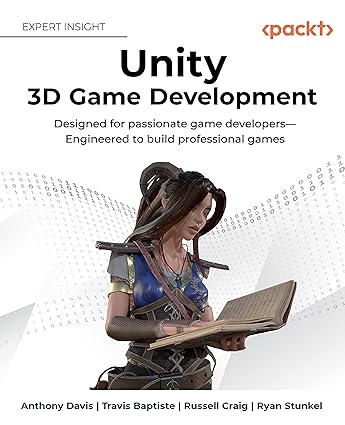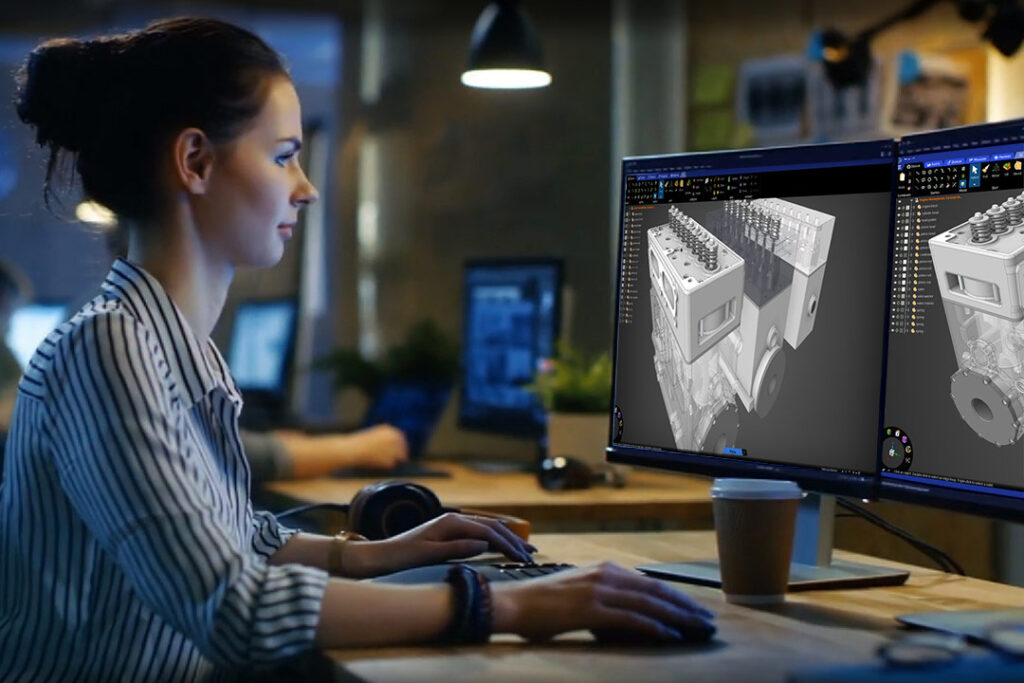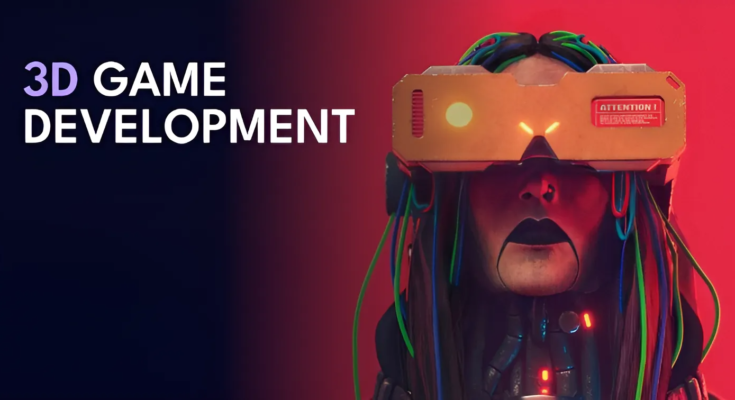Getting started in 3D game development is an exciting journey that opens up a world of creative possibilities and career opportunities. Whether you’re a passionate gamer looking to bring your own ideas to life or a budding developer eager to dive into the world of game creation, 3D game development offers a thrilling blend of artistry, technology, and storytelling.
In the realm of 3D game development, you have the power to create immersive worlds, craft compelling narratives, and design intricate gameplay experiences that captivate players around the globe. From building sprawling fantasy realms to crafting futuristic sci-fi adventures, the only limit is your imagination.
However, embarking on this journey can seem daunting at first. With so many tools, technologies, and techniques to master, it’s natural to feel overwhelmed. But fear not! With the right guidance and resources, you can take your first steps into the world of 3D game development with confidence and enthusiasm.
This guide is designed to provide you with a roadmap for starting your journey in 3D game development. We’ll explore the fundamental concepts, essential skills, and practical steps you need to take to begin creating your own 3D games. Whether you’re a complete beginner or have some experience in game development, this guide will help you navigate the exciting world of 3D game development and set you on the path to success.
So, if you’re ready to embark on an adventure into the world of 3D game development, let’s dive in and explore how you can get started on this thrilling journey.
“Embark on your journey into 3D game development with determination, creativity, and a willingness to learn. Every step forward is a step closer to bringing your imagination to life in the digital world.”
Importance of Learning 3D Game Development
Learning 3D game development opens up a world of opportunities in the gaming industry. With the increasing demand for high-quality, immersive gaming experiences, skilled 3D game developers are in high demand. Whether you aspire to work for a game development studio, freelance as a game developer, or create your own indie games, learning 3D game development can help you turn your passion for gaming into a rewarding career.

Understanding the Basics
What is 3D Modeling?

3D modeling is the process of creating a three-dimensional representation of an object using specialized software. In 3D game development, 3D models are used to create characters, objects, and environments within the game world. These models are created using polygons, which are connected to form the shape of the object. Textures and materials are then applied to the model to give it a realistic appearance.
What is Game Design?
Game design is the process of creating the rules, mechanics, and overall structure of a video game. It involves designing the gameplay, levels, and interactions that players will experience while playing the game. Game designers work closely with developers and artists to bring their vision for the game to life, ensuring that it is engaging, challenging, and fun for players.
What is Game Development?
Game development is the process of creating a video game from concept to completion. It involves various stages, including designing the game, developing the code and artwork, testing the game for bugs and glitches, and finally, releasing the game to the public. Game development requires a combination of technical skills, creativity, and teamwork to create a successful game.
Steps to Get Started
Learning Programming Languages
To get started in 3D game development, it’s essential to learn programming languages commonly used in game development, such as C#, C++, or UnityScript. These languages are used to write the code that controls the behavior of the game, including player movement, interactions, and game logic.
Understanding Game Engines
Game engines are software frameworks that provide developers with tools and libraries to create games more efficiently. Popular game engines like Unity and Unreal Engine offer a wide range of features, including 3D rendering, physics simulations, and audio integration, making them ideal for 3D game development.
Exploring 3D Modeling Software
To create 3D models for your games, you’ll need to learn how to use 3D modeling software such as Blender, Maya, or 3ds Max. These software tools allow you to create and manipulate 3D models, textures, and animations, which are essential for creating realistic game environments and characters.
Studying Game Design Principles
Understanding the principles of game design is crucial for creating engaging and enjoyable games. Game design principles include concepts such as game mechanics, level design, storytelling, and player engagement. By studying these principles, you can create games that are not only fun to play but also well-designed and immersive.
Building a Portfolio of Projects
One of the best ways to showcase your skills and attract potential employers or clients is to build a portfolio of projects. Start by creating small, simple games to demonstrate your skills and then gradually work on more complex projects as you gain experience. Your portfolio should showcase your creativity, technical skills, and ability to work on a team.
Resources for Learning
Online Tutorials and Courses
There are many online tutorials and courses available that can help you learn 3D game development. Websites like Udemy, Coursera, and YouTube offer a wide range of courses covering topics such as game design, programming, and 3D modeling.
Books on 3D Game Development
Books are another great resource for learning 3D game development. There are many books available that cover various aspects of game development, from beginner to advanced topics. Some recommended books include “Unity in Action” by Joe Hocking and “Game Programming Patterns” by Robert Nystrom.
Community Forums and Online Communities
Joining community forums and online communities can be a great way to connect with other aspiring game developers and learn from their experiences. Websites like Reddit, Stack Overflow, and Unity Forums are excellent places to ask questions, share ideas, and get feedback on your projects.
Game Development Events and Conferences
Attending game development events and conferences can provide you with valuable insights into the industry and opportunities to network with professionals. Events like the Game Developers Conference (GDC) and IndieCade offer workshops, panels, and networking events specifically for aspiring game developers.
Also Read: 5 Best Core Java Online Courses for Experienced Java Programmers
Practical Tips for Beginners
Start with Simple Projects
When starting out in 3D game development, it’s essential to start with simple projects to build your skills and confidence. Choose projects that are manageable in scope and focus on learning one aspect of game development at a time.
Collaborate with Other Developers
Collaborating with other developers can help you learn new skills and gain valuable experience. Joining a game development team or working on open-source projects can provide you with opportunities to collaborate with others and contribute to real-world projects.
Seek Feedback and Iterate on Your Work
Feedback is crucial in game development, as it helps you identify areas for improvement and refine your skills. Share your work with others and be open to constructive criticism. Use feedback to iterate on your projects and make them better.
Stay Updated with Industry Trends and Technologies
The gaming industry is constantly evolving, with new technologies and trends emerging regularly. Stay updated with the latest developments in the industry by reading gaming news, following industry blogs, and participating in online discussions. This will help you stay ahead of the curve and adapt to changes in the industry.
Conclusion
In conclusion, getting started in 3D game development is an exciting and rewarding journey that offers endless possibilities for creativity and innovation. By following the steps outlined in this guide, you can begin your journey with confidence and set yourself on the path to becoming a successful game developer.
Remember, the key to success in 3D game development is practice, perseverance, and a passion for gaming. Start small, experiment with different tools and techniques, and don’t be afraid to make mistakes. Each project you undertake will teach you valuable lessons that will help you grow as a developer and bring you closer to achieving your goals.
As you progress on your journey, don’t forget to seek out feedback from others, participate in online communities, and stay updated with the latest trends and technologies in the industry. By staying curious and continuously learning, you can stay ahead of the curve and create games that captivate and inspire players around the world.
FAQ
Q: Do I need to have prior programming experience to get started in 3D game development?
While prior programming experience can be beneficial, it is not a strict requirement. Many resources and tutorials are available for beginners that can help you learn programming languages and concepts relevant to game development.
Q: Which programming languages are commonly used in 3D game development?
Some of the most commonly used programming languages in 3D game development include C#, C++, and UnityScript (a variant of JavaScript). These languages are used to write the code that controls the behavior of the game and interacts with the game engine.
Q: Do I need to know how to create 3D models to get started in 3D game development?
While having the ability to create 3D models can be helpful, it is not a requirement to get started in 3D game development. There are many resources and tools available that allow you to use pre-made 3D models or create simple models without extensive modeling experience.
Q: How long does it take to learn 3D game development and start creating my own games?
The time it takes to learn 3D game development can vary depending on your background and the complexity of the games you want to create. However, with dedication and consistent effort, you can start creating simple games within a few months and progress to more complex projects over time.
Q: What are some resources I can use to learn 3D game development?
There are many resources available to help you learn 3D game development, including online tutorials, courses, books, and community forums. Websites like Udemy, Coursera, and YouTube offer a wide range of courses covering topics such as game design, programming, and 3D modeling.
Q: Is it possible to start 3D game development as a hobby or do I need to pursue it as a full-time career?
You can start 3D game development as a hobby and gradually transition into a full-time career if you choose. Many successful game developers started by creating games in their spare time and eventually turned their hobby into a lucrative career.




